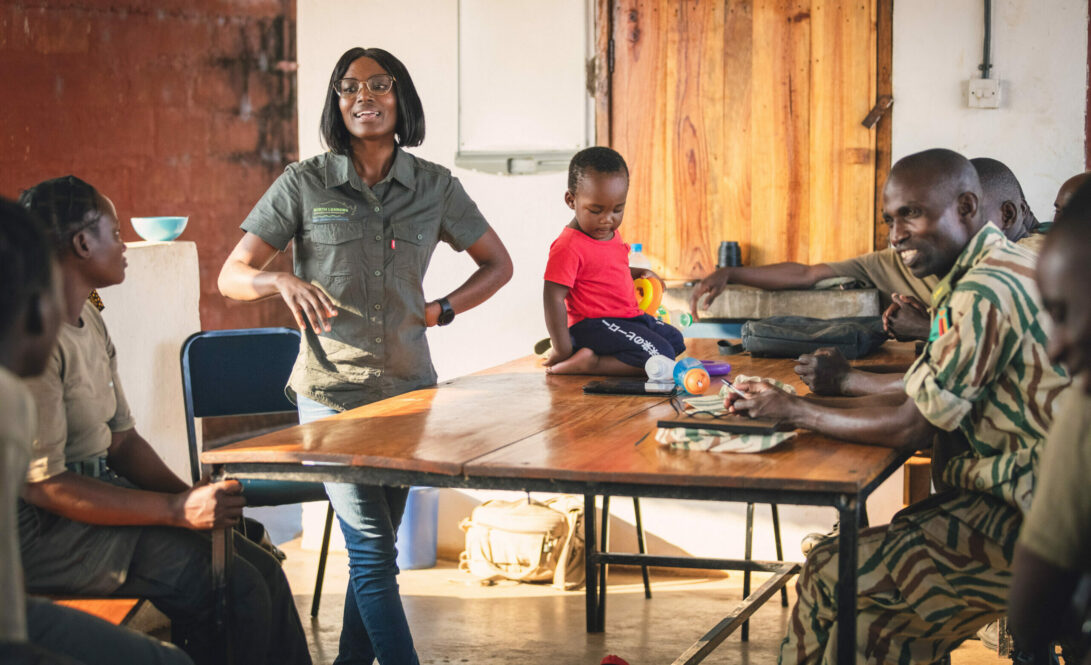Written by Cesca Cooke, Grants Team Contractor, and Penelope Konkola, Gender Diversity and Inclusion Officer, North Luangwa Conservation Programme.
In the realm of conservation, female empowerment projects have emerged as a powerful force, reshaping the outlook of wildlife protection. One remarkable aspect of this movement is the growing number of female rangers.
As women increasingly take up roles in a traditionally male-dominated field, they bring unique perspectives, resilience, and compassion to safeguarding our planet’s precious biodiversity. However, it is essential to acknowledge that the path to becoming a female ranger is not without challenges.
At the North Luangwa Conservation Programme, we have been supporting the inclusion of women for many years, witnessing a welcome rise in females joining the law-enforcement sector. Yet, it has never been enough to simply look at the numbers and hope for change. We must continually look at the working environment and speak to women across the conservation landscape, understanding their challenges, and implementing new approaches that boost diversity.
Two of our female rangers, Chakanga Mbulo (Canine Master Handler) and Joan Kasabula (Intern tracker in the Rhino Monitoring Unit) both have key responsibilities in the law-enforcement department and are also new mothers. They each have a unique perspective, navigating this part of their lives whilst juggling important responsibilities and aiming to be role models in their communities.
When Chakanga was asked how she motivates other women in her community, she said, “I am treated with respect by both men and women. I am viewed as a woman who has influence and is an example for mothers with teenage daughters”.
Joan spoke of how North Luangwa supports women in their law-enforcement teams, “The deliberate effort that is shown has really helped me grow personally. I am empowered every time there is an opportunity to improve my skills. The project is also flexible with what assignments are given to new and breastfeeding mothers, and this has enabled many of us mothers to continue providing for our families whilst still executing our duties.”
These women are rewriting the narrative of wildlife protection in their communities. Their presence and dedication challenges gender norms and inspires young girls to envision a future beyond societal expectations, showing them that conservation knows no gender boundaries. As they uplift the next generation, the future of conservation looks brighter than ever before – a future built on inclusivity, collaboration, and the unyielding determination to protect Zambia’s invaluable natural heritage.
A version of this article was originally printed in our annual supporter magazine, The Horn.








